detail profile z c3 b3zimo bulbul
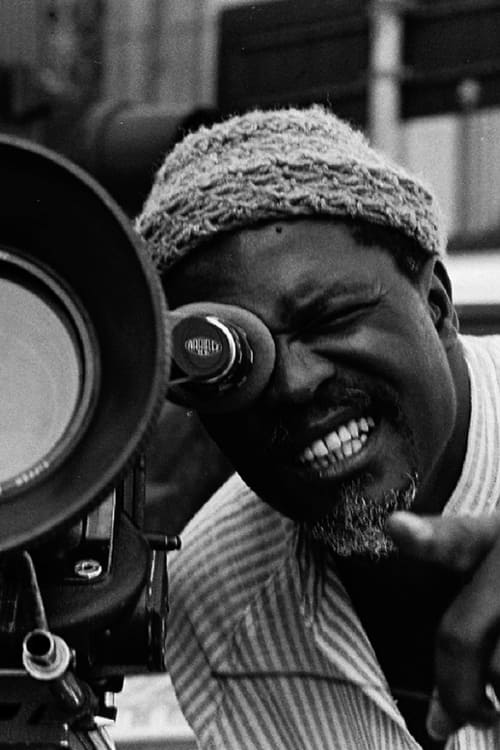
Riwayat Hidup
A Brazilian filmmaker, actor, producer and screenwriter, Jorge da Silva, better known by his stage name Zózimo Bulbul, is regarded as a household name of black Brazilian cinema.
He was also the founder of Rio de Janeiro's Black Cinema Center ("Centro Afro Carioca de Cinema").
As an actor, he worked in over 30 features, and was directed by filmmakers such as Glauber Rocha (in "Terra em Transe"), Carlos Diegues ("Quilombo") and Antunes Filho ("Compasso de Espera"), becoming the first black man to play a main character in a Brazilian TV soap opera, in 1969's "Vidas em Conflito".
His debut as a filmmaker was 1974's black and white short "Alma no Olho".
With his work focusing in raising awareness to Brazilian black culture, Bulbul remained an active filmmaker until his death in 2013.
His most well known film, as a director, is 1988's "Abolição", a lengthy documentary that gives critical thoughts on Brazil's 1888's ending of slavery and in what changed for the country's Black people over the course of a century.
Info Pribadi
Peran Yang Di Mainkan Zózimo Bulbul
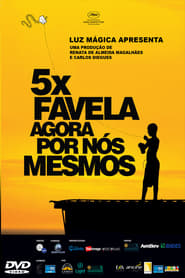 The project 5 x slum now by...
The project 5 x slum now by...5x Favela, Now by Ourselves 2010
The project '5 x slum, now by ourselves' gathered over 80 young people from Rio's favelas (slums), selected through workshops, script and filmmaking techniques to create a feature film consisting of five stories that reflect different facets of the daily lives of residents of these communities - with the promise of escape stereotypical representations.
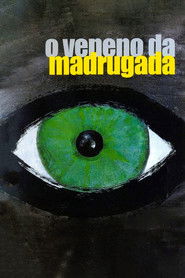 The old servant and chronicler Dom...
The old servant and chronicler Dom...In Evil Hour 2006
The old servant and chronicler Dom Sabas tells how his desolate South American town is the scene of a ruthless power struggle. The landowning Assis family, reduced to a widow and son, tries to hold out against the young, despotic mayor. No less effective then actions are anonymous rumors and accusations, which often stir the inhabitants' moves.
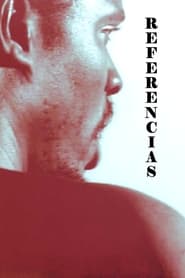 During a showing of rare AfroBrazilian...
During a showing of rare AfroBrazilian...Referências 2006
During a showing of rare Afro-Brazilian Cinema films at the Cinematheque of the Museum of Modern Art of Rio de Janeiro, actor/filmmaker Zózimo Bulbul gathered some of the most notorious Brazilian black directors to talk about their works, their lives and their perspectives on the future.
 Young man of Portuguese nobility ascendancy...
Young man of Portuguese nobility ascendancy...The Forest 2002
Young man, of Portuguese nobility ascendancy, starts working in a rubber plantation in the Amazon, in 1912, and falls in love with pretty Yayá, a married woman.
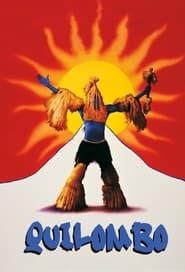 Quilombo dos Palmares was a reallife...
Quilombo dos Palmares was a reallife...Quilombo 1984
Quilombo dos Palmares was a real-life democratic society, created in Brazil in the 17th century. This incredibly elaborate (and surprisingly little-known) film traces the origins of Quilombo, which began as a community of freed slaves. The colony becomes a safe harbor for other outcasts of the world, including Indians and Jews. Ganga Zumba (Toni Tornado) becomes president of Quilombo, the first freely elected leader in the Western Hemisphere. Naturally, the ruling Portuguese want to subjugate Zumba and his followers, but the Quilombians are ready for their would-be oppressors. The end of this Brave New World is not pleasant, but the followers of Zumba and his ideals take to the hills, where they honor his memory to this day. Writer/director Carlos Diegues takes every available opportunity to compare the rise and fall of Quilombo with the state of affairs in modern-day Brazil.
 In So Paulo Vanessa who is...
In So Paulo Vanessa who is...The Girl and the Rapist 1982
In São Paulo, Vanessa who is normally spoiled rotten, is neglected and rejected by her mother, practically raised alone by her butler and driver Pedro and the maid, Dalva. Vanessa has disturbing daydreams and sexual fantasies, but doesn't let Arlindo, a teenager that flirts with her get close to her. Her best friend is Denise, a promiscuous girl that has intercourse with different men. When Vanessa discloses to Denise her problem, Denise gives the address of her psychotherapist Dr. Artur, to her friend. The unethical shrink pushes Vanessa to the edge, bringing memories of a severe trauma of her childhood. Then the disturbed Dr. Artur induces the girls to commit suicide.
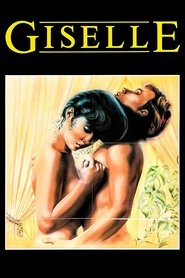 Sexy girl seduces all the members...
Sexy girl seduces all the members...Giselle 1980
Sexy girl seduces all the members of her family. She indirectly causes the failure of his father's marriage, for her stepmother falls in love with her. Then, she has affairs with her father's stepson, and with the farm housekeeper. She and some friends are also raped by some bad guys. But they all celebrate the ruin of traditional family values.
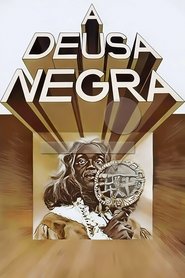 A Deusa Negra is a love...
A Deusa Negra is a love...Black Goddess 1978
A Deusa Negra is a love story that spans two centuries. In 18th century Yorubaland, Prince Oluyole is taken prisoner in the course of internecine warfare fanned by overseas slave traders. He is sold into slavery in Brazil. In present day Nigeria, at his father's deathbed, the young Babatunde promises to go to Brazil and search for traces of their once-enslaved ancestors. Beginning with a Candomblé ritual, his journey takes him ever deeper into this culture and, in a dream-like sequence, affords him a deeper understanding of his ancestors' suffering and powers of resistance. Balogun effortlessly links present with past, real with magical worlds and discourse with trance. The hypnotic atmosphere is also heightened by the music of the Nigerian drummer Remi Kabaka, which plays with repetitive patterns and distortions.
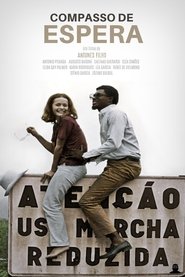 Jorge de Oliveira is an AfroBrazilian...
Jorge de Oliveira is an AfroBrazilian...Compasso de Espera 1973
Jorge de Oliveira is an Afro-Brazilian poet who works in a publicity agency in São Paulo. Torn between his rich white lovers and his black family and friends, Jorge's situation serves as a springboard to a discussion about racial issues in Brazil.
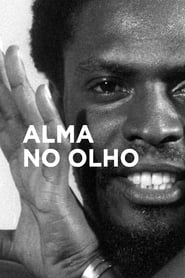 Inspired by Black Panther Eldridge Cleavers...
Inspired by Black Panther Eldridge Cleavers...Soul in the Eye 1973
Inspired by Black Panther Eldridge Cleaver’s book Soul on Ice and dedicated to John Coltrane, Soul in the Eye marks the beginning of Black Brazilian films. The film is a metaphor for the legacy of culture and survival bestowed by enslaved Africans brought to the American continent and the search for freedom through inner transformation, in a game inspired by concretism.
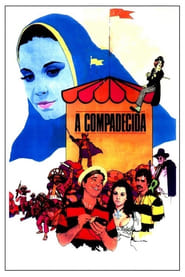 Joo Grilo is a backwoodsman who...
Joo Grilo is a backwoodsman who...Our Lady Of Compassion 1969
João Grilo is a backwoodsman who tries to get along at the expense of the powerful in the city, who pretend to be respectful of morals and good customs and hide their sins. But when a band of cangaceiros attacks the small town, everyone has to settle accounts with God and the Devil.
 Chronicles the life of a 17 yearold...
Chronicles the life of a 17 yearold...The Girl from Ipanema 1967
Chronicles the life of a 17 year-old girl living in the upper-class Rio de Janeiro neighbourhood of Ipanema. Márcia lives a life of parties and spend her days among bohemians, musicians and intellectuals. While seeming happy in the outside, she's extremely anguished inside. Based on the famous song by Antonio Carlos Jobim and Vinicius de Moraes.
 Eldorado a fictitious country in America...
Eldorado a fictitious country in America...Entranced Earth 1967
Eldorado, a fictitious country in America, is sparkling with the internal struggle for political power. In the eye of this social convulsion, the jaded journalist Paulo Martins opposes two equally corrupt political candidates: a pseudopopulist and a conservative. In this context, Paulo is torn between the madness of the elite and the blind submission of the masses. But, in this complex tropical reality, nothing really is what it seems to be.
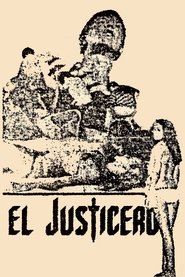 A shockingly irreverent followup to the...
A shockingly irreverent followup to the...El Justicero 1967
A shockingly irreverent follow-up to the rural austerity of Barren Lives, dos Santos’ Godardian social satire owes more than a nod to the self-conscious antics of the French New Wave. The pampered son of a general, El Justicero is a hipster playboy who fancies himself a James Bond/Jean Paul Sartre urban hero. “Archetypical” yet “full of contradictions,” he sees that justice is achieved for the disadvantaged while taking advantage of certain bourgeois perks. His exploits are closely followed and eventually directed by his biographer who decides a film is not only more lucrative than a book, but it gives him the luxury of reviewing previous scenes. Unlike Bond, El Jus eventually experiences an awakening which threatens to compromise the entertainment value and glamour of his life story. - Harvard Film Archive
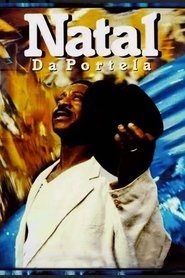 Biography of one of the legendary...
Biography of one of the legendary...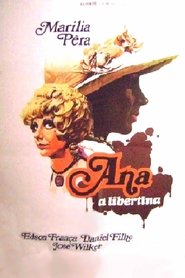
 Edson is having an affair with...
Edson is having an affair with...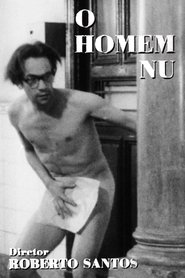 A man gets locked naked outside...
A man gets locked naked outside...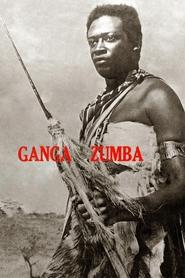 The life of a runaway slave...
The life of a runaway slave...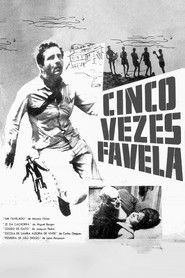 Five segments about the hardships faced...
Five segments about the hardships faced...